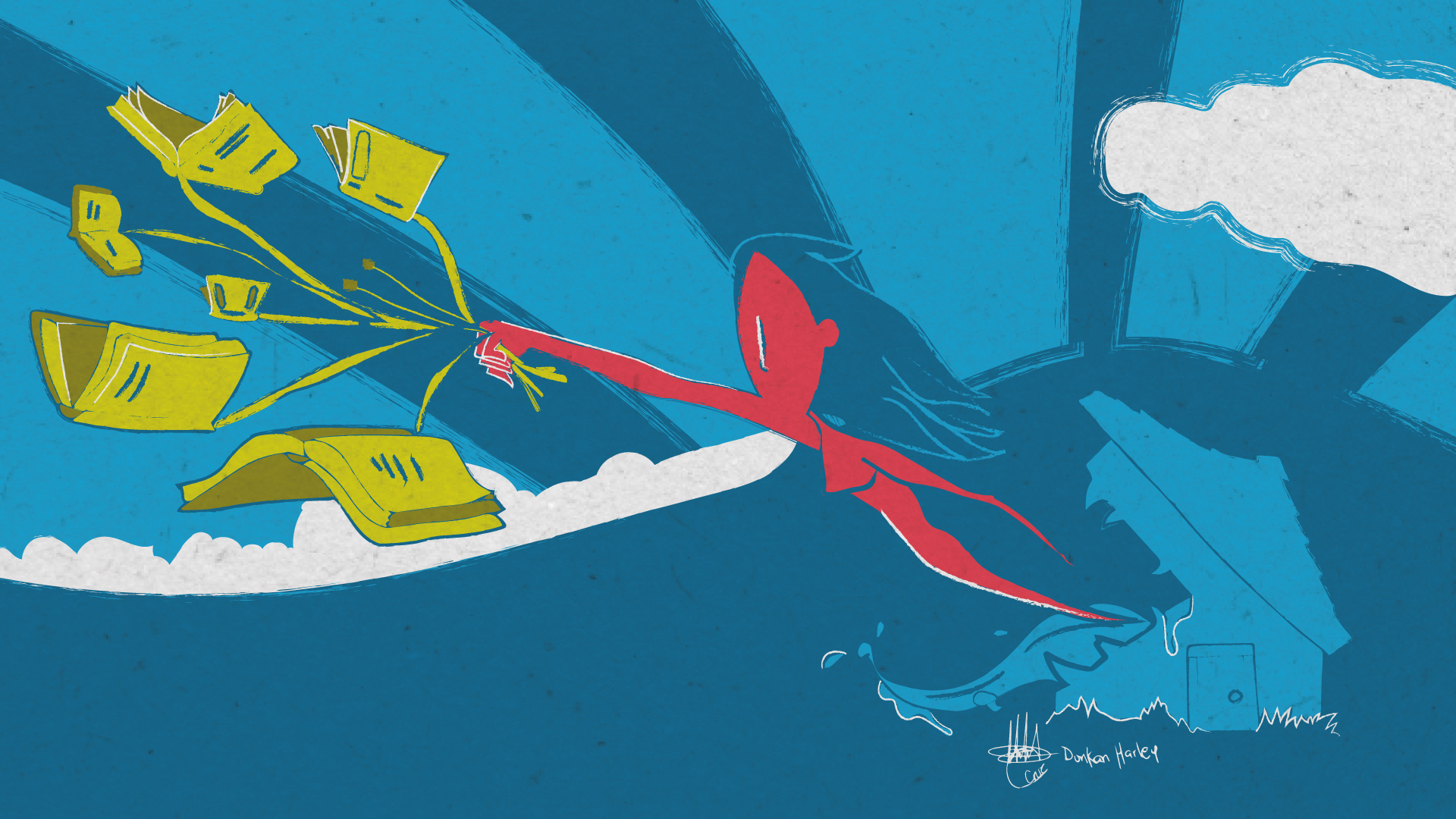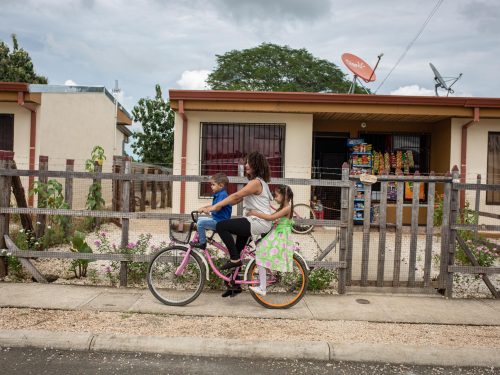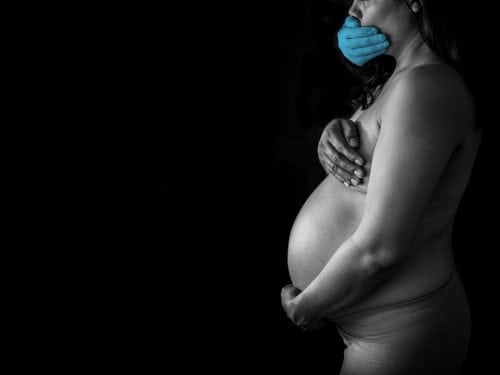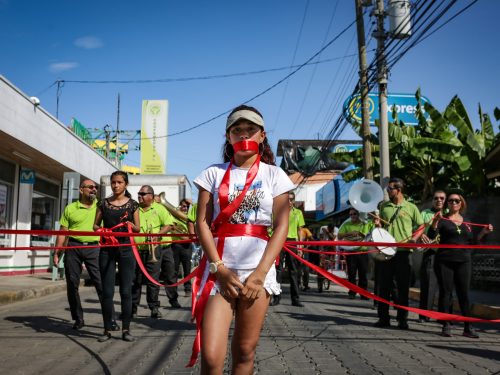

To protect the person interviewed, we have concealed her identity.
“I have to do something to feel better,” Adriana says over the phone. She walks, trying to hide from the gusts of wind that break up communication. The breeze from Salinas Bay, in La Cruz, muffles her voice.
Today, a Monday in November, she puts aside all her house chores and college homework to go to the beach. This is one of the things Adriana does to feel better.
She is 19 years old now. Since she was a child, her mother has abused her physically and psychologically. She says that she was raised under “the typical correction that is given to children through physical or verbal violence.”
It’s not so much that they hit you or something like that, but it’s the words, because you grow older and you still remember what they told you maybe ten years ago and it still hurts,” she explained.
Adriana is one of the many students who live in student housing at the University of Costa Rica’s (UCR’s) Guanacaste campus, located in Liberia. She obtained this benefit as a complement to scholarships 4 and 5, which are offered to those who live far from the university and to those with financial need.
She remembers that before getting a dorm room, she would get out of classes at 9 p.m. but she’d have to wait two hours to catch her bus and she wouldn’t get home until 1 a.m. At 5:30 in the morning, she would leave again to arrive on time for her 7 a.m. class.
That was her routine for a whole semester: little sleep, little money and a lot of family problems, including an overload of chores that had to be done at home.
After an exhausting first semester, she wrote a letter to the university explaining her situation, looking for a way out. The next semester, she finally received a place in student housing.
Like Adriana, more than 77% of students enrolled in regional campuses have some sort of scholarship, according to UCR’s Office of Scholarships and Socio-Financial Aid. Moreover, around 90% of the students receiving scholarships at the Chorotega campus fall into categories 4 and 5.
“I really felt a peace, a happiness, because I was going to be resting from all the stress,” Adriana recalls. “I felt good about myself, my grades went up and the problems between my mother and me decreased. When I came to visit, it was like a pleasant feeling that you miss that person and want to talk to her, tell her new things.”
The pandemic made all of that fall apart. One of the measures that the Ministry of Health took was closing student housing. Adriana had no choice but to go home.
They told us about how they’ve photographed their daily lives in the middle of the pandemic
As the wind continues making her voice sound more and more distant, Adriana talks about her back pain, the increase in stress and the four kilograms (9 pounds) she has lost after the coronavirus entered the country.
What the Pandemic Took Away
On March 16, UCR announced that it would close student housing to prevent the spread of COVID-19. The housing, in general, consists of a small space where many people live, who also use common areas such as kitchens and dining rooms on a daily basis.
Going back home hasn’t been easy at all for Adriana. She feels that the pandemic caused a setback in her emotional stability and her independence.
You take a step, you get out of that circle that was affecting you, in which you didn’t feel comfortable. Then the pandemic shows up and you go back. But now it isn’t the same way it was before. Instead, it is much more complicated because you had already adapted to another way of living,” she commented.
Upon returning home, Adriana’s routine became overloaded with tasks. She is studying eight subjects for one major and has another on hiatus. She’s part of a student initiative, is doing University Community Work as well as an internship at the Ministry of Health in La Cruz. Add to this the housework: washing clothes, cleaning the house, washing dishes and making food. In the midst of all this pressure, she also has to maintain very good grades at the university.
The demands don’t end there. Her mother makes her stay in the house and constantly supervises who she talks to. In addition, she’s had to lie about the amount of money she receives from the scholarship so that she doesn’t control her income as well.
While giant steps have been taken toward achieving equality in the workplace, the same hasn’t been the case with sharing housework equally. Women continue to shoulder a double load: at work and at home.
“Sometimes you feel bad about yourself because you can’t cope. It’s something that is mentally exhausting, because at this age and with this pandemic, you should feel your family’s support and that is something that you don’t have,” she confesses.
Like Adriana, many other students have suffered emotional consequences from the pandemic. According to data from the Student Life Psychology Office at the same campus, most of the consultations they’ve received have been for crisis intervention derived from the pandemic, such as the feeling of confinement, anxiety about the news and the world situation as well as due to fear of personal and family infection or that “normality” won’t return.
Although Adriana tries not to let all this affect her academically, she admits that it has “touched her [life] quite a bit” emotionally.
I had never wanted to no longer be in this world, and twice now I’ve had that feeling and it’s something very, very complicated,” she confesses.
Opening the Door Again
While taking a break from her stress at El Jobo beach, Adriana tells me that she has thought three times about leaving home. She dreams of returning to an apartment in Liberia and sharing it with two other students. The experiences she shared with other friends in student housing showed her a way that she can no longer go back to where she came from.
“The ‘u’ opens many doors to you and opens your eyes to another way of seeing the world, of knowing how to get along with others, how to solve problems without the need for hurtful words, without the need to use physical violence,” Adriana comments.
The director of the Chorotega campus, Wagner Moreno, believes that the problems are not solved but are reproportioned when the students leave home.
“I think it is a great thing for the mental health of the student body that the university contributes with housing or with the category of geographic relocation because they begin to live a life of respect, peace and greater autonomy,” he adds.
Moreno shares the idea that many young people in Guanacaste can only get out of a circle of domestic violence if they go to work or because they get married or start living with someone. “But the university opens up to many women the possibility of leaving their homes with what we could call a dignified label. ‘I’m leaving [home] because I’m going to study,'” he adds.
Weeks later, from her new apartment, Adriana will send me an audio message on WhatsApp, telling me about her dreams of traveling the world, being a professor at a public university and, one day, Minister of the Environment.
Adriana built a path paved with books and notebooks to get out of the violence that she experienced at home. She says her left and right foot are her two majors.
Growing up in an environment of violence doesn’t mean that someone is going to follow that chain, but that one puts a stop to it,” she said.
If you are a student and need psychological assistance, you can contact the following phone numbers:
- Psicología, Vida Estudiantil: 2511-9579
- Colegio de Psicólogos y Psicólogas de Costa Rica: 1322








Comments